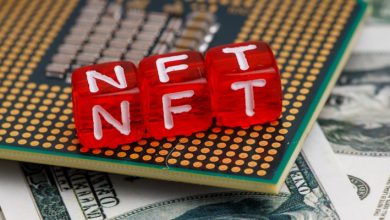Fundamental Analysis of Blockchain Projects

- Understanding the Basics of Blockchain Technology
- Key Factors to Consider in Evaluating Blockchain Projects
- Analyzing the Team and Advisors Behind a Blockchain Project
- Assessing the Market Potential and Use Cases of Blockchain Projects
- Examining the Tokenomics and Economic Model of Blockchain Projects
- Risks and Challenges in Conducting Fundamental Analysis of Blockchain Projects
Understanding the Basics of Blockchain Technology
Blockchain technology is a decentralized, distributed ledger system that records transactions across multiple computers in a secure and transparent manner. It is the underlying technology behind cryptocurrencies like Bitcoin and Ethereum. Understanding the basics of blockchain technology is essential for anyone looking to invest in blockchain projects or cryptocurrencies.
One key feature of blockchain technology is its immutability, meaning once a transaction is recorded on the blockchain, it cannot be altered or deleted. This provides a high level of security and trust in the system. Another important aspect is transparency, as all transactions are visible to all participants in the network, ensuring accountability and reducing the risk of fraud.
Blockchain technology uses cryptographic algorithms to secure transactions and create a chain of blocks that are linked together. Each block contains a list of transactions, a timestamp, and a reference to the previous block, forming a chronological chain. This makes it virtually impossible to tamper with the data stored on the blockchain.
Smart contracts are another key feature of blockchain technology, allowing for the execution of self-executing contracts without the need for intermediaries. These contracts are stored on the blockchain and automatically execute when certain conditions are met, streamlining processes and reducing costs.
Overall, blockchain technology has the potential to revolutionize various industries by increasing efficiency, transparency, and security. By understanding the basics of blockchain technology, investors can make informed decisions when evaluating blockchain projects and cryptocurrencies for potential investment opportunities.
Key Factors to Consider in Evaluating Blockchain Projects
When evaluating blockchain projects, there are several key factors to consider to ensure you are making an informed decision. These factors can help you determine the viability and potential success of a project in the long run. Here are some important aspects to keep in mind:
– **Team**: One of the most crucial factors to consider is the team behind the blockchain project. Look for a team with a strong background in blockchain technology, as well as experience in the industry. A competent team can greatly increase the chances of a project’s success.
– **Technology**: Assess the technology being used in the blockchain project. Look for projects that are utilizing innovative and secure technology to ensure the longevity and scalability of the project. Understanding the technical aspects of the project can give you valuable insights into its potential.
– **Use Case**: Consider the use case of the blockchain project. Evaluate whether the project solves a real-world problem and has a clear value proposition. Projects with a strong use case are more likely to gain adoption and succeed in the market.
– **Partnerships**: Take a look at the partnerships that the blockchain project has established. Strong partnerships with reputable companies can provide credibility and open up opportunities for growth. Partnerships can also indicate the project’s potential for mainstream adoption.
– **Community**: Evaluate the community surrounding the blockchain project. A strong and engaged community can help drive adoption and support the project in the long term. Look for projects with an active community that is passionate about the project’s goals.
By considering these key factors when evaluating blockchain projects, you can make more informed investment decisions and increase your chances of backing a successful project. Remember to conduct thorough research and due diligence before committing to any investment in the blockchain space.
Analyzing the Team and Advisors Behind a Blockchain Project
When conducting a fundamental analysis of a blockchain project, it is crucial to thoroughly analyze the team and advisors involved. The expertise and experience of the team members can greatly impact the success of the project. Look for a diverse team with a strong background in blockchain technology, finance, marketing, and other relevant fields.
Additionally, consider the advisors associated with the project. Advisors can provide valuable insights and connections that can help the project succeed. Look for advisors with a proven track record in the industry and a strong network of contacts.
It is also important to assess the team’s communication and transparency. A transparent team that regularly updates the community on the project’s progress and challenges can build trust and credibility. Look for projects that have a history of open communication with their supporters.
In conclusion, analyzing the team and advisors behind a blockchain project is a critical step in evaluating its potential for success. By carefully examining the expertise, experience, and transparency of the team members and advisors, investors can make more informed decisions about which projects to support.
Assessing the Market Potential and Use Cases of Blockchain Projects
When conducting a fundamental analysis of blockchain projects, it is crucial to assess the market potential and use cases of the projects. Understanding the market demand for the blockchain solution being offered is essential for determining its long-term viability and success. By evaluating the specific use cases that the project aims to address, investors can gain insight into the practical applications of the technology and its potential impact on various industries.
One way to assess the market potential of a blockchain project is to analyze the size and growth rate of the target market. This involves researching the current market trends, identifying key competitors, and evaluating the demand for similar blockchain solutions. By understanding the market dynamics, investors can make informed decisions about the project’s potential for adoption and scalability.
Furthermore, examining the use cases of blockchain projects can provide valuable insights into the real-world problems that the technology aims to solve. Whether it is improving supply chain transparency, enhancing data security, or enabling decentralized finance applications, each use case presents unique opportunities and challenges for the project. By evaluating the feasibility and relevance of these use cases, investors can assess the project’s potential for creating value and driving innovation in the market.
Examining the Tokenomics and Economic Model of Blockchain Projects
When conducting a fundamental analysis of blockchain projects, it is crucial to examine the tokenomics and economic model that underpin the project. Tokenomics refers to the study of the token’s economic model, including its distribution, supply, demand, and utility within the ecosystem. Understanding the tokenomics of a project can provide valuable insights into its long-term viability and potential for growth.
One key aspect to consider when evaluating tokenomics is the token distribution. This involves examining how tokens are allocated, whether there is a lock-up period for team and advisor tokens, and how tokens are released into circulation. A well-thought-out token distribution plan can help prevent market manipulation and ensure a fair distribution of tokens among stakeholders.
Another important factor to analyze is the token supply. By understanding the total supply of tokens and the rate at which new tokens are minted, investors can assess the potential for inflation and its impact on the token’s value over time. Additionally, examining the token’s utility within the ecosystem can provide insights into its demand and potential for adoption.
Risks and Challenges in Conducting Fundamental Analysis of Blockchain Projects
When conducting fundamental analysis of blockchain projects, there are several risks and challenges that investors need to be aware of. These factors can impact the accuracy and reliability of the analysis, potentially leading to poor investment decisions. It is important to consider these risks and challenges before making any investment decisions in the blockchain space.
- Volatility: The cryptocurrency market is known for its high volatility, which can make it difficult to predict the future performance of blockchain projects.
- Regulatory uncertainty: The regulatory environment for blockchain projects is constantly evolving, which can create uncertainty and legal risks for investors.
- Security risks: Blockchain projects are vulnerable to hacking and security breaches, which can result in financial losses for investors.
- Market manipulation: The cryptocurrency market is susceptible to manipulation, which can distort the true value of blockchain projects.
- Technological challenges: Blockchain technology is still relatively new and complex, which can make it challenging to assess the technical viability of projects.
Overall, it is important for investors to approach fundamental analysis of blockchain projects with caution and to carefully consider the risks and challenges involved. By staying informed and conducting thorough research, investors can make more informed investment decisions in the blockchain space.



